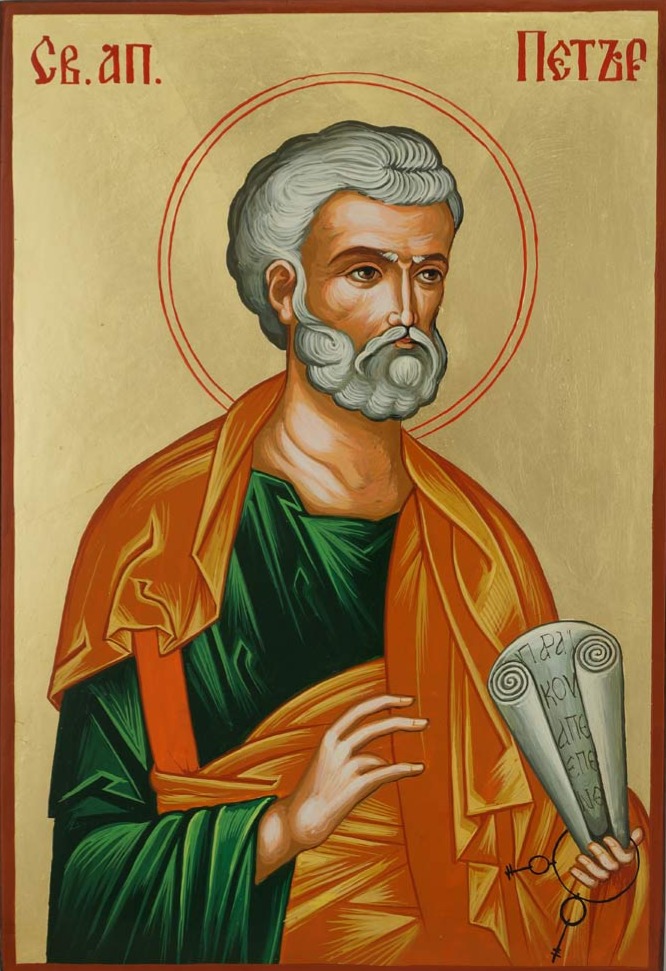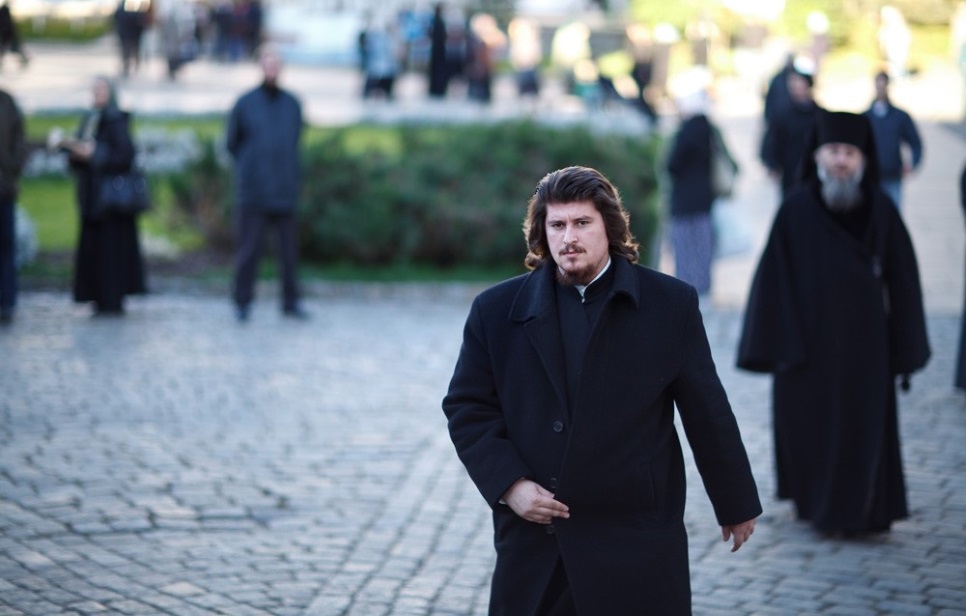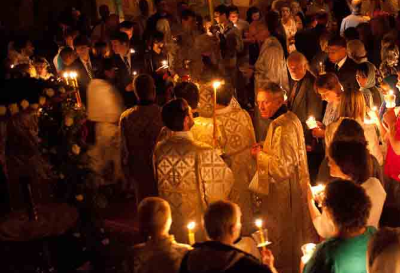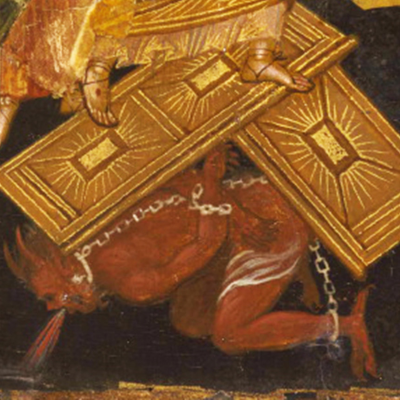No Sentimentality
In “The Church Impotent,” cited above (and recommended by several of these men), Leon Podles offers a theory about how Western Christian piety became feminized. In the 12th-13th centuries a particularly tender, even erotic, strain of devotion arose, one which invited the individual believer to picture himself or herself (rather than the Church as a whole) as the Bride of Christ. “Bridal Mysticism” was enthusiastically adopted by devout women, and left an enduring stamp on Western Christianity. It understandably had less appeal for guys. For centuries in the West, men who chose the ministry have been stereotyped as effeminate. A life-long Orthodox layman says that, from the outside, Western Christianity strikes him as “a love story written for women by women.”
The Eastern Church escaped Bridal Mysticism because the great split between East and West had already taken place. The men who wrote me expressed hearty dislike for what they perceive as a soft Western Jesus. “American Christianity in the last two hundred years has been feminized. It presents Jesus as a friend, a lover, someone who ‘walks with me and talks with me.’ This is fine rapturous imagery for women who need a social life. Or it depicts Jesus whipped, dead on the cross. Neither is the type of Christ the typical male wants much to do with.”
During worship, “men don’t want to pray in the Western fashion with hands clasped, lips pressed together, and a facial expression of forced serenity.” “It’s guys holding hands with other guys and singing campfire songs.” “Lines about ‘reaching out for His embrace,‘’‘wanting to touch His face,’ while being ‘overwhelmed by the power of His love’—those are difficult songs for one man to sing to another Man.”
“A friend of mine told me that the first thing he does when he walks into a church is to look at the curtains. That tells him who is making the decisions in that church, and the type of Christian they want to attract.”
“Guys either want to be challenged to fight for a glorious and honorable cause, and get filthy dirty in the process, or to loaf in our recliners with plenty of beer, pizza, and football. But most churches want us to behave like orderly gentlemen, keeping our hands and mouths nice and clean.”
One man said that worship at his Pentecostal church had been “largely an emotional experience. Feelings. Tears. Repeated rededication of one’s life to Christ, in large emotional group settings. Singing emotional songs, swaying hands aloft. Even Scripture reading was supposed to produce an emotional experience. I am basically a do-er, I want to do things, and not talk about or emote my way through them! As a business person I knew that nothing in business comes without effort, energy, and investment. Why would the spiritual life be any different?”
Another, who visited Catholic churches, says, “They were conventional, easy, and modern, when my wife and I were looking for something traditional, hard, and counter-cultural, something ancient and martial.” A catechumen says that at his non-denominational church “worship was shallow, haphazard, cobbled together from whatever was most current; sometimes we’d stand, sometimes we’d sit, without much rhyme or reason to it. I got to thinking about how a stronger grounding in tradition would help.”
“It infuriated me on my last Ash Wednesday that the priest delivered a homily about how the real meaning of Lent is to learn to love ourselves more. It forced me to realize how completely sick I was of bourgeois, feel-good American Christianity.”
A convert priest says that men are drawn to the dangerous element of Orthodoxy, which involves “the self-denial of a warrior, the terrifying risk of loving one’s enemies, the unknown frontiers to which a commitment to humility might call us. Lose any of those dangerous qualities and we become the ‘JoAnn Fabric Store’ of churches: nice colors and a very subdued clientele.”
“Men get pretty cynical when they sense someone’s attempting to manipulate their emotions, especially when it’s in the name of religion. They appreciate the objectivity of Orthodox worship. It’s not aimed at prompting religious feelings but at performing an objective duty.”
From a deacon: “Evangelical churches call men to be passive and nice (think ‘Mr. Rogers’). Orthodox churches call men to be courageous and act (think ‘Braveheart’).




